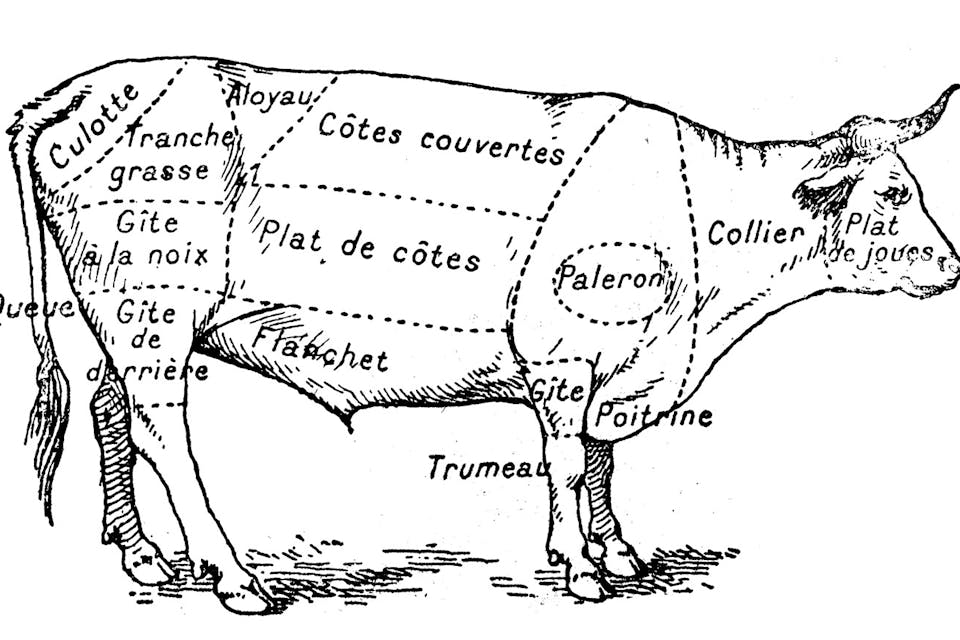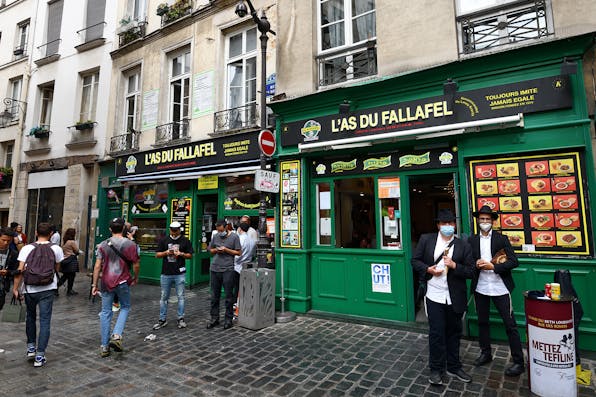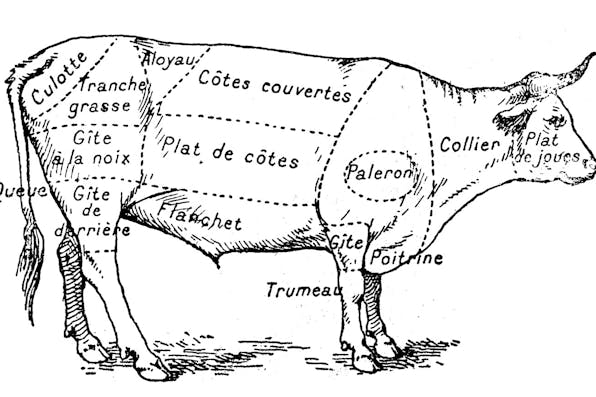
April 28, 2023
Who’s Afraid of Ritual Slaughter?
Insects may be welcome on European plates, but not kosher meat.
It is not an easy task to respond to the remarks made by Anael Malet, Michel Gurfinkiel, and Matthew Schmitz insofar as their comments are in line with the ideas I developed in my original essay. At the same time, they all adopt different angles of approach that invite reflection.
First of all, a clarification: I was careful to write about the place anti-Semitism holds in the European offensive against ritual slaughter. It is not a form of anti-Judaism as that concept has been known in the distant (Christian) or recent (socialist, Marxist, or Nazi) past. That at the extremes of the political spectrum Jew-hatred and animal rights are intimately linked is self-evident, but it doesn’t explain why the consumer masses and Europe’s judges are also driving the offensive. I therefore fully agree with Anael Malet’s categorization of the four main families of anti-ritual slaughter activists in Europe: “nationalists, animal-rights activists, anti-religion secularists, and consumer-rights defenders.” (As for her mention of Voltaire, in my opinion it is to his great credit that one can interpret his attack on the Jews as a backhanded attack on Christians. Yet he is not innocent of the charge. Of the many people in charge of his finances, Voltaire felt entitled to defraud only one, the Jew Hirschel. And he made a murderer of his only Jewish character in Candide. There is nothing anti-Christian about this.)
In general, I would be more cautious than Anael Malet in ascribing the anti-ritual slaughter campaign to a “lack of a genuine understanding of the meaning of religion in [European] society.” Europe has good reasons for not wanting to leave too much power to religion. A Middle Ages punctuated by crusades and massacres, eight wars of religion in France, and 30 years of war between Catholic and Protestant princes in Europe are enough. The memory of the religiously motivated pogroms which spared almost no community should convince the Jews that they have nothing to lose—in theory—in a secular Europe. Today’s Europe was built against religion. It does not want it as the mortar for its social structure because it has cost too much. Europe knows very well what it is losing and says “good riddance.” The problem is that it has not found anything to replace religion. For generations now, individualism, materialism, hedonism and, it must be admitted, generalized deculturation have precipitated a distending of the social bond between neighbors and families, and within families themselves. Europe is in the grip of a moral wandering which is reflected in the contradictions of its jurisprudence; its judges are citizens like any others.
Responses to April ’s Essay

April 2023
Why Europeans Find Blaming the Jews Easier than Giving Up Meat
By Anael Malet
April 2023
Are Europe’s Restrictions on Jewish and Muslim Ritual Due to Christianity’s Influence or Absence?
By Matthew Schmitz
April 2023
The Marcionite Offensive
By Michel Gurfinkiel
April 2023
Who’s Afraid of Ritual Slaughter?
By Eric Mechoulan